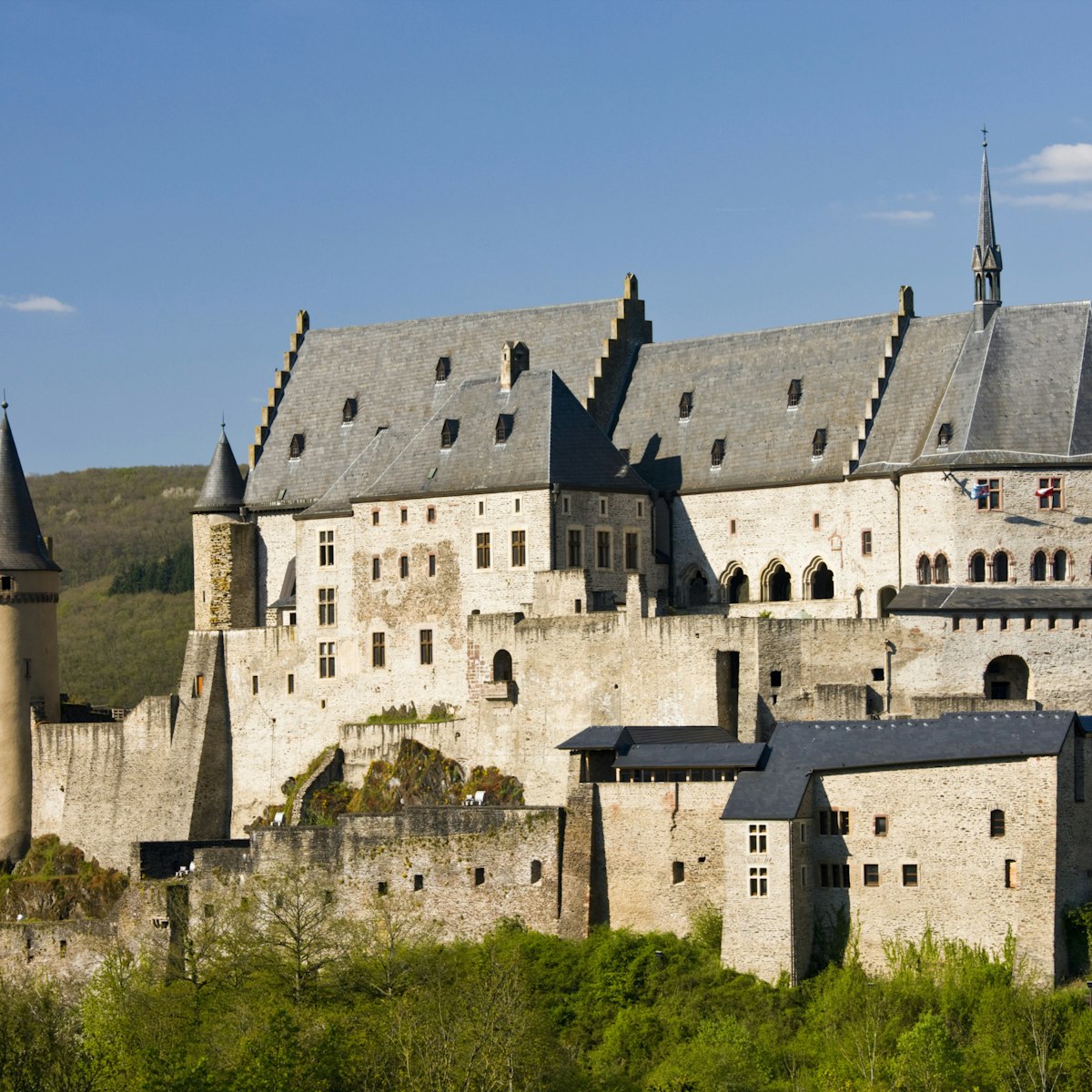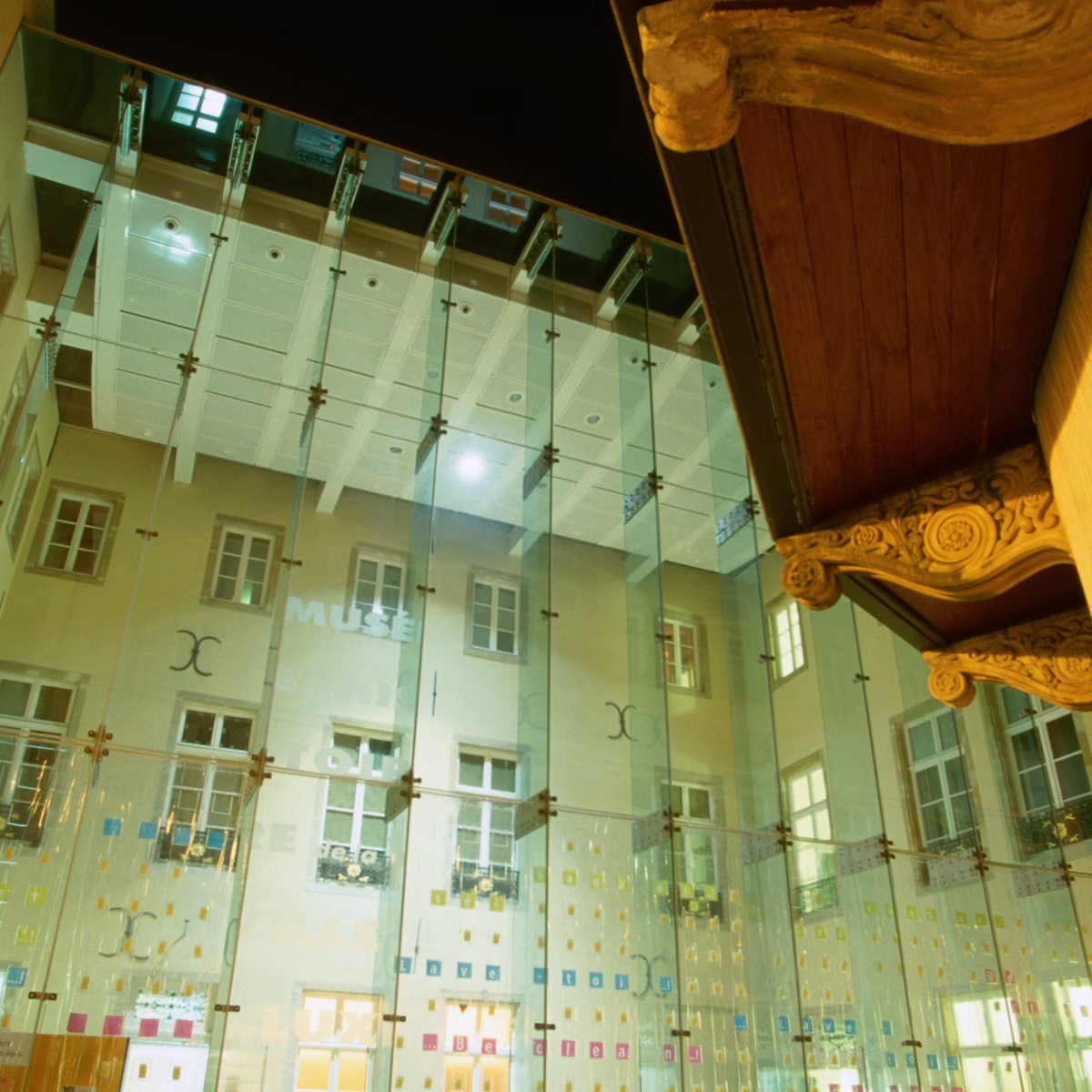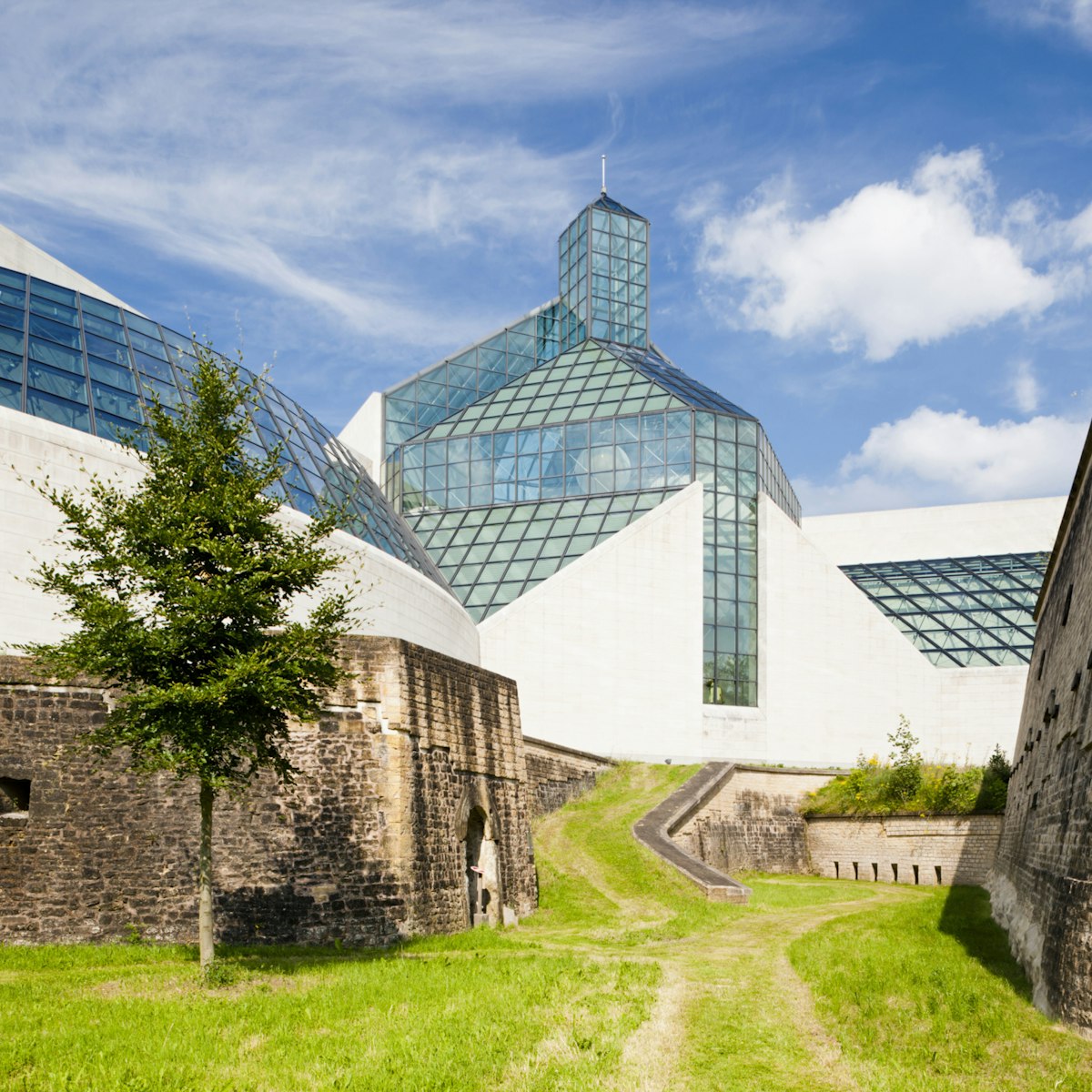Prior to WWII, Luxembourg had a Jewish community of approximately 3500 people. Of them, some 2500 fled, most to France, before emigration was halted in 1941. During the Nazi Occupation, some 800 Jews were deported to concentration camps in Poland and then-Czechoslovakia. The train station where their harrowing journey began is now a small museum. Take bus 18 or the RB train from Gare Centrale.
œ„∏€¡˘∫œ≤ º¥ ±ø™Ω±'s must-see attractions

26.09 MILES
Trier's most famous landmark, this brooding 2nd-century Roman city gate – blackened by time, hence the name, which is Latin for ‘black gate’ – is a marvel…

25.91 MILES
Constructed around AD 310 as Constantine’s throne room, the brick-built basilica is now an austere Protestant church. With built-to-impress dimensions …

23.78 MILES
This château's extraordinary outline is the result of an almost-total 20th-century restoration after the original, built from the 11th to 14th centuries,…

Musée d'Histoire de la Ville de Luxembourg
1.18 MILES
Hidden within a series of 17th- to 19th-century houses, including a former ‘holiday home’ of the Bishop of Orval, the city's history museum is engrossing…

1.37 MILES
Beneath the Montée de Clausen, the clifftop site of Count Sigefroi’s once-mighty fort, the Bock Casemates are an atmospheric honeycomb of rock galleries…

1.79 MILES
Groundbreaking exhibitions of modern, installation and experiential art take place in this airy architectural icon designed by Pritzker-winning architect…

1.11 MILES
Hailed as 'Europe's most beautiful balcony', this pedestrian promenade winds along the course of the 17th-century city ramparts with views across the…

25.96 MILES
Looming above the Roman palace of Helena (Emperor Constantine's mother), this cathedral is Germany's oldest bishop's church and still retains Roman…
Nearby Luxembourg City attractions
0.78 MILES
Deep beneath the Spuerkeess bank is a permanent exhibition on photographer Edward Steichen, who put together Clervaux’ Unesco-listed Family of Man…
0.9 MILES
Where better than the financial hub of Luxembourg to spend an hour browsing through a bank museum? It's housed in the dramatic, century-old, castle-style…
1.04 MILES
Originally installed on Place de la Constitution in 1923 by Luxembourg sculptor Claus Cito, this 21m-high grantie obelisk topped by a wreath-bearing…
1.05 MILES
Towering above this leafy triangular ‘square’ is a WWI memorial, Gëlle Fra. Beyond, the valley falls away to the Pétrusse River.
1.05 MILES
Hungarian composer-virtuoso Franz Liszt gave his last concert at this grand one-time society mansion. Today, the building hosts regularly changing…
1.11 MILES
Hailed as 'Europe's most beautiful balcony', this pedestrian promenade winds along the course of the 17th-century city ramparts with views across the…
1.13 MILES
Built between 1613 and 1621, and enlarged between 1935 and 1938, Luxembourg's cathedral is most memorable for its distinctively elongated black spires,…
1.14 MILES
Completed in 1838, the city's neoclassical town hall was largely constructed from the stones of a Franciscan monastery that previously occupied the site…